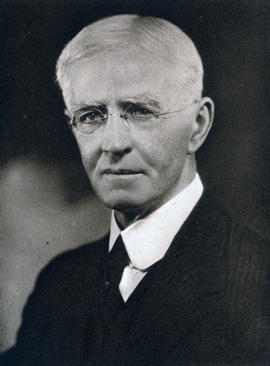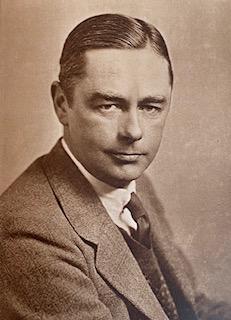Mitchell was the son of Rev. Alexander Mitchell, a Presbyterian minister in Dunfermline, Scotland, and Marion Chalmers. He gained his MA at the University of Aberdeen, and then went to Christ Church, Oxford, where he read natural sciences, specialising in zoology. After his honours examination in 1888, he was appointed University Demonstrator in Zoology.
In 1911 he delivered the Royal Institution Christmas Lecture on 'The Childhood of Animals'.
In 1896 he was the anonymous author of an article in the Saturday Review entitled 'A Biological View of English Foreign Policy', which proposed the inevitability of a final battle between Britain and Germany, in which one would be destroyed. In February 1915 He gave three lectures on the subject of evolution and foreign policy at the Royal Institution that expanded on his 1896 article. These were combined and published in the form of a book entitled 'Evolution and the War' in May 1915. In April 1916, now an Army Captain, he was made responsible for setting up a specialist department MI7(B)4 to oversee the production of military propaganda to be dropped from the air over enemy lines.
He was Secretary of the Zoological Society of London from 1903-1935, second in length of office to his predecessor Philip Lutley Sclater. Mitchell's brainchild, Whipsnade Zoo, was opened in 1931 on the Dunstable Downs, Bedfordshire. In 1933 he was one of eleven people involved in the appeal which led to the foundation of the British Trust for Ornithology.
On retiring, he moved to Malaga, staying there during the first six months or so of the Spanish Civil War, until the city was taken on behalf of the rebels by Italian troops. An account of his last days in Malaga, including his arrest along with Arthur Koestler, is included in Koestler's book 'Spanish Testament' and in his own memoir 'My House in Malaga', published in 1938.
Mitchell died on 2nd July 1945 after being injured in an accident on 29th June outside London Zoo. After stepping off a bus, he was struck by a taxicab. A species of South American worm lizard, Amphisbaena mitchelli, is named in his honour. He also proved in the treatise 'On the Intestinal Tract of Mammals' that the caecum of mammals is directly homologous with the paired caeca of birds.

